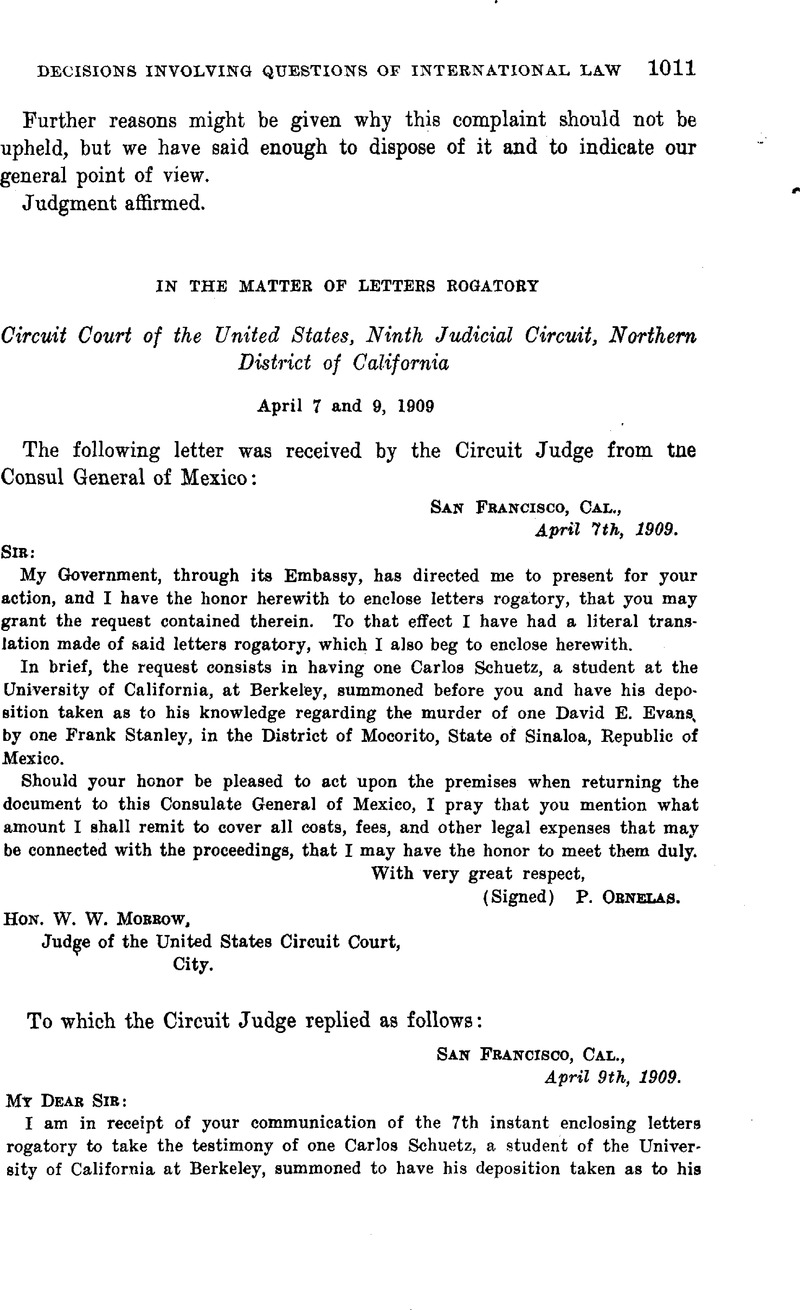The Impact of Technology on the Efficiency of Letters Rogatory Processes
The Impact of Technology on the Efficiency of Letters Rogatory Processes
Blog Article
Letters Rogatory Explained: Facilitating Legal Participation Between Countries

Interpretation of Letters Rogatory
Letters rogatory are official requests made by a court in one jurisdiction to a court in another territory, looking for assistance in getting evidence or testament for a legal proceeding. This step-by-step system is important in the context of worldwide regulation, where legal systems might vary, and cross-border collaboration is required. Letters rogatory promote the event of info that might be essential for adjudicating instances, specifically in instances including intricate transnational concerns.
Typically, these requests develop in civil, criminal, or administrative issues where a party requires evidence that lies outside the territory of the requesting court. The letters function as a way to make sure that the concepts of due procedure are promoted, allowing courts to accessibility proof that could or else continue to be inaccessible due to lawful or geographic barriers.
The usage of letters rogatory is controlled by worldwide treaties, bilateral contracts, or domestic laws, which delineate the treatments and commitments of the courts entailed. It is very important to keep in mind that the execution of such requests is not ensured; they depend upon the laws and practices of the jurisdiction obtaining the letter. Hence, letters rogatory are a crucial device for cultivating legal cooperation and ensuring justice throughout boundaries.
The Refine of Issuing Letters Rogatory
Issuing letters rogatory involves an organized procedure that ensures compliance with both international and residential lawful standards. The asking for event, typically a court or lawful authority, prepares a formal demand describing the nature of the aid looked for, the evidence or details required, and the lawful basis for the request. This document needs to be accurate to facilitate understanding by the international territory.

The next step includes transferring the letters rogatory to the assigned foreign authority. This is typically done via polite networks or worldwide legal aid structures, guaranteeing that the request is received and recognized by the international court. The foreign court then processes the request according to its very own lawful treatments, eventually reacting to the requesting party with the sought-after details or proof, thus assisting in global legal collaboration.
Importance in International Regulation
The relevance of letters rogatory in worldwide law can not be overstated, as they function Continued as an important mechanism for judicial participation throughout borders. These formal ask for help in legal issues enable courts in one territory to inquire, evidence, or the visibility of witnesses from an additional territory, thus facilitating the management of justice in multinational instances.
Letters rogatory are specifically crucial in the context of globalization, where legal disagreements typically span multiple countries. They enable the collection of proof that may or else be hard to reach, ensuring that legal proceedings are educated and reasonable. By promoting collaboration between judicial systems, letters rogatory aid support the regulation of law and advertise mutual respect amongst nations.
In addition, the usage of letters rogatory shows a commitment to worldwide standards and concepts of teamwork, showing the interconnected nature of contemporary lawful techniques. It shows the value of sticking to established procedures and treaties, such as the Hague Convention, which supplies a structure for these demands - Letters rogatory. Ultimately, letters rogatory enhance the efficiency of lawful processes, guaranteeing that justice is not prevented by geographical boundaries
Difficulties and Limitations
In spite of their relevance, letters rogatory face several difficulties and constraints that can impede their effectiveness. One main problem is the varying lawful structures and treatments across territories, which can result in misunderstandings and delays in the execution of demands. Different nations might have distinctive needs for the validity of letters rogatory, complicating the procedure additionally.
In addition, the often lengthy nature of worldwide legal teamwork can impede timely access to proof or witnesses. This hold-up might detrimentally influence legal proceedings or ongoing examinations, particularly in instances calling for immediate action. Additionally, the lack of sources and training in some jurisdictions can cause not enough handling of demands, bring about incomplete or poor reactions.
Cultural distinctions and differing perspectives in the direction of legal procedures can additionally posture significant obstacles. For circumstances, countries with much less official lawful systems may struggle to conform with the procedural rigor expected in letters rogatory. Finally, political stress between countries can affect the determination to execute demands, causing a lack of cooperation and decreasing the energy of this device in worldwide legislation. These obstacles necessitate constant dialogue and reform to enhance the effectiveness of letters rogatory in legal teamwork.
Instance Researches and Instances

Conversely, difficulties can arise, as seen in an instance involving a European country looking for evidence in an ongoing criminal matter from a non-EU country - Letters rogatory. The procedure was directory delayed because of bureaucratic difficulties and differing legal requirements, inevitably hindering the investigation
These instances illustrate that while letters rogatory can help with global cooperation and speed up lawful proceedings, they likewise highlight the requirement for clear interaction and understanding of lawful frameworks between nations. Such instance studies underscore the significance of refining this device to improve efficiency and effectiveness in global legal matters.
Final Thought
In recap, letters rogatory offer as an important device for facilitating legal participation in between countries, making certain the collection of proof and statement across territories. Their relevance in international regulation can not be overstated, as they promote due process and boost the effectiveness of cross-border legal proceedings.
Letters rogatory are official requests made by a court in one jurisdiction to a court in an additional jurisdiction, looking for support in obtaining proof or testimony for a lawful proceeding. The asking for celebration, normally a court or legal authority, composes a formal demand detailing the nature of the aid looked for, the proof or info required, and the legal basis for the demand. The foreign court then processes the demand according to its own lawful procedures, ultimately reacting to the requesting celebration with the sought-after info or proof, hence assisting in international legal participation.
Furthermore, the usage of letters rogatory demonstrates a dedication to international standards and concepts of collaboration, mirroring the interconnected nature of contemporary lawful techniques.Global legal teamwork via letters rogatory is not without its real-world effects, as illustrated by different instance researches that highlight both successes and difficulties.
Report this page